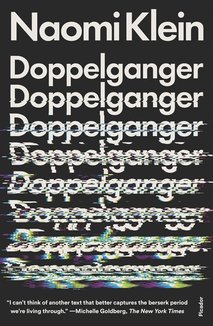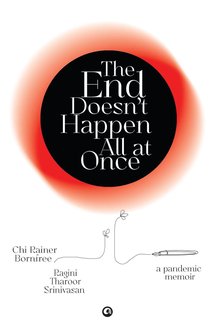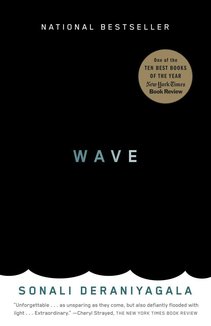Recommended Books

The Making of the Atomic Bomb: 25th Anniversary Edition
Author:
Richard Rhodes
ISBN 13:
978-1451677614
**Winner of the Pulitzer Prize, the National Book Award, and the National Book Critics Circle Award** The definitive history of nuclear weapons— from the turn-of-the-century discovery of nuclear energy to J. Robert Oppenheimer and the Manhattan Project—this epic work details the science, the people, and the sociopolitical realities that led to the development of the atomic bomb. This sweeping account begins in the 19th century, with the discovery of nuclear fission, and continues to World War Two and the Americans’ race to beat Hitler’s Nazis. That competition launched the Manhattan Project and the nearly overnight construction of a vast military-industrial complex that culminated in the fateful dropping of the first bombs on Hiroshima and Nagasaki. Reading like a character-driven suspense novel, the book introduces the players in this saga of physics, politics, and human psychology—from FDR and Einstein to the visionary scientists who pioneered quantum theory and the application of thermonuclear fission, including Planck, Szilard, Bohr, Oppenheimer, Fermi, Teller, Meitner, von Neumann, and Lawrence. From nuclear power’s earliest foreshadowing in the work of H.G. Wells to the bright glare of Trinity at Alamogordo and the arms race of the Cold War, this dread invention forever changed the course of human history, and The Making of The Atomic Bom b provides a panoramic backdrop for that story. Richard Rhodes’s ability to craft compelling biographical portraits is matched only by his rigorous scholarship. Told in rich human, political, and scientific detail that any reader can follow, The Making of the Atomic Bomb is a thought-provoking and masterful work.

Doppelganger
Author:
Naomi Klein
ISBN 13:
978-1250338143
A finalist for the 2023 National Book Critics Circle Award Winner of the Women's Prize for Nonfiction NEW YORK TIMES BESTSELLER | National Indie Bestseller A New York Times notable book of 2023 | Vulture ’s #1 book of 2023 One of Slate ’s ten best books of 2023 | A Guardian best ideas book of 2023 | One of Time ’s ten best books of 2023 | Winner of the Pacific Northwest Book Award “I’ve been raving about Naomi Klein’s Doppelganger . . . I can’t think of another text that better captures the berserk period we’re living through.” ―Michelle Goldberg, The New York Times “If I had to name a single book that makes sense of these last few dark years, it would be this one.” ―Katie Roiphe, The New York Times Book Review (Editors’ Choice) What if you woke up one morning and found you’d acquired another self―a double who was almost you and yet not you at all? What if that double shared many of your preoccupations but, in a twisted, upside-down way, furthered the very causes you’d devoted your life to fighting against? Not long ago, the celebrated activist and public intellectual Naomi Klein had just such an experience―she was confronted with a doppelganger whose views she found abhorrent but whose name and public persona were sufficiently similar to her own that many people got confused about who was who. Destabilized, she lost her bearings, until she began to understand the experience as one manifestation of a strangeness many of us have come to know but struggle to define: AI-generated text is blurring the line between genuine and spurious communication; New Age wellness entrepreneurs turned anti-vaxxers are scrambling familiar political allegiances of left and right; and liberal democracies are teetering on the edge of absurdist authoritarianism, even as the oceans rise. Under such conditions, reality itself seems to have become unmoored. Is there a cure for our moment of collective vertigo? Naomi Klein is one of our most trenchant and influential social critics, an essential analyst of what branding, austerity, and climate profiteering have done to our societies and souls. Here she turns her gaze inward to our psychic landscapes, and outward to the possibilities for building hope amid intersecting economic, medical, and political crises. With the assistance of Sigmund Freud, Jordan Peele, Alfred Hitchcock, and bell hooks, among other accomplices, Klein uses wry humor and a keen sense of the ridiculous to face the strange doubles that haunt us―and that have come to feel as intimate and proximate as a warped reflection in the mirror. Combining comic memoir with chilling reportage and cobweb-clearing analysis, Klein seeks to smash that mirror and chart a path beyond despair. Doppelganger asks: What do we neglect as we polish and perfect our digital reflections? Is it possible to dispose of our doubles and overcome the pathologies of a culture of multiplication? Can we create a politics of collective care and undertake a true reckoning with historical crimes? The result is a revelatory treatment of the way many of us think and feel now―and an intellectual adventure story for our times.

The End Doesn't Happen All at Once : A Pandemic Memoir
Authors:
Chi Rainer Bornfree
,
Ragini Tharoor Srinivasan
ISBN 13:
978-9365236644
'Will you write letters with me, back and forth, for the duration of this virus?' When Covid-19 isolated us all in March 2020, C and R — old friends, parents of young children, academics, and writers — turned to each other. In 100 intensely vulnerable letters, C and R found their way through family estrangement, tense racial dynamics, gender transitions, chronic pain, dramatic career changes, and activist campaigns. Though both continued to mask and take precautions long after the world returned to 'normal', they were often pained by each other's choices. Nonetheless, they always returned to the page, enacting what R calls durational performance art. The resulting book is a deeply personal, fiercely political roller coaster that plunges from the lockdowns, into social ambivalence, and finally through the long, politically manufactured 'end' of the pandemic. The End Doesn't Happen All at Once is an unusual kind of Covid book: it recasts the pandemic, in the words of Arundhati Roy, as a possible 'portal' into a different world. Conscious of their privileged status as vaccinated Americans, the writers examine global political realities: from Narendra Modi's announcement of the March 2020 lockdown in India and the ensuing chaos; to the Trumpists' attack on the US Capitol Building in 2021; from the systemic collapse in India, to the US government's failures around racism, healthcare, gun violence, abortion laws, and the climate crisis. These letters serve as both historical document and activist call, and above all, an inspiring testament to the power of friendship to give us the courage to change.
Find on:
 Amazon
Amazon

Plagues Upon the Earth: Disease and the Course of Human History (The Princeton Economic History of the Western World)
Author:
Kyle Harper
ISBN 13:
978-0691230597
A sweeping germ’s-eye view of history from human origins to global pandemics Plagues Upon the Earth is a monumental history of humans and their germs. Weaving together a grand narrative of global history with insights from cutting-edge genetics, Kyle Harper explains why humanity’s uniquely dangerous disease pool is rooted deep in our evolutionary past, and why its growth is accelerated by technological progress. He shows that the story of disease is entangled with the history of slavery, colonialism, and capitalism, and reveals the enduring effects of historical plagues in patterns of wealth, health, power, and inequality. He also tells the story of humanity’s escape from infectious disease—a triumph that makes life as we know it possible, yet destabilizes the environment and fosters new diseases. Panoramic in scope, Plagues Upon the Earth traces the role of disease in the transition to farming, the spread of cities, the advance of transportation, and the stupendous increase in human population. Harper offers a new interpretation of humanity’s path to control over infectious disease—one where rising evolutionary threats constantly push back against human progress, and where the devastating effects of modernization contribute to the great divergence between societies. The book reminds us that human health is globally interdependent—and inseparable from the well-being of the planet itself. Putting the COVID-19 pandemic in perspective, Plagues Upon the Earth tells the story of how we got here as a species, and it may help us decide where we want to go.

Calling the Shots: Why Parents Reject Vaccines
Author:
Jennifer A. Reich
ISBN 13:
978-1479874835
Winner, 2018 Donald W. Light Award for Applied Medical Sociology, American Sociological Association Medical Sociology Section Winner, 2018 Distinguished Scholarship Award presented by the Pacific Sociology Association Honorable Mention, 2017 ESS Mirra Komarovsky Book Award presented by the Eastern Sociological Society Outstanding Book Award for the Section on Altruism, Morality, and Social Solidarity presented by the American Sociological Association A rich, multi-faceted examination into the attitudes and beliefs of parents who choose not to immunize their children The measles outbreak at Disneyland in December 2014 spread to a half-dozen U.S. states and sickened 147 people. It is just one recent incident that the medical community blames on the nation’s falling vaccination rates. Still, many parents continue to claim that the risks that vaccines pose to their children are far greater than their benefits. Given the research and the unanimity of opinion within the medical community, many ask how such parents―who are most likely to be white, college educated, and with a family income over $75,000―could hold such beliefs. For over a decade, Jennifer Reich has been studying the phenomenon of vaccine refusal from the perspectives of parents who distrust vaccines and the corporations that make them, as well as the health care providers and policy makers who see them as essential to ensuring community health. Reich reveals how parents who opt out of vaccinations see their decision: what they fear, what they hope to control, and what they believe is in their child’s best interest. Based on interviews with parents who fully reject vaccines as well as those who believe in “slow vax,” or altering the number of and time between vaccinations, the author provides a fascinating account of these parents’ points of view. Placing these stories in dialogue with those of pediatricians who see the devastation that can be caused by vaccine-preventable diseases and the policy makers who aim to create healthy communities, Calling the Shots offers a unique opportunity to understand the points of disagreement on what is best for children, communities, and public health, and the ways in which we can bridge these differences.

Wave: A Memoir
Author:
Sonali Deraniyagala
ISBN 13:
978-0345804310
NATIONAL BESTSELLER • A NATIONAL BOOK CRITICS CIRCLE AWARD FINALIST • One woman's searing account of losing her entire family in a tsunami. “The most exceptional book about grief I’ve ever read.... As unsparing as they come, but also defiantly flooded with light.... Extraordinary.” —Cheryl Strayed, The New York Times Book Review A Kirkus Reviews Best Nonfiction Book of the Century In 2004, at a beach resort on the coast of Sri Lanka, Sonali Deraniyagala and her family—parents, husband, sons—were swept away by a tsunami. Only Sonali survived to tell their tale. This is her account of the nearly incomprehensible event and its aftermath.